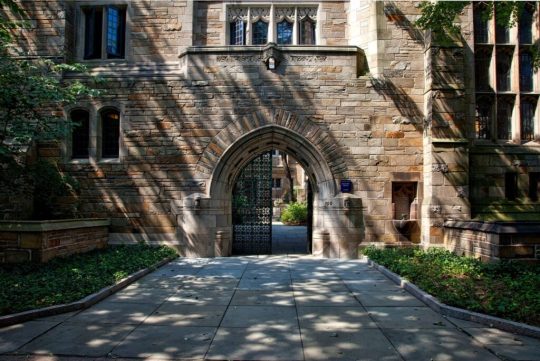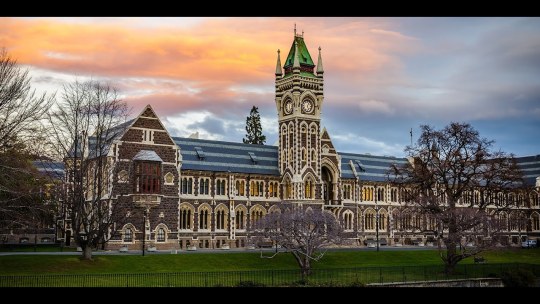#university of otago admission
Text
The practice of men and women sharing hospital rooms violates human rights and should be prohibited, a group of academics argues.
In a paper just published in the Journal of Medical Ethics, the researchers outline how mixed-gender hospital rooms go against the fundamental human rights of personal security and dignity.
Lead author Dr Cindy Towns, of the University of Otago, Wellington, says placing male and female patients in the same room “compromises the safety of female patients and threatens the dignity of all patients”.
“Risk of rights violations and subsequent harm is exacerbated by the high rates of physical, cognitive, and sensory impairment experienced by people in hospital wards.
“New Zealand needs to immediately adopt specific national policies prohibiting mixed-gender hospital rooms and mandating public reporting of breaches,” she says.
Despite being prohibited in the United Kingdom for more than a decade, the practice is common and increasing in New Zealand.
Previous research by the group showed mixed rooms were common in a major New Zealand public hospital – in the more than 160,000 admissions analysed, 48 per cent were affected by mixed-gender rooms. The prevalence also increased over the eight-year period studied, and disproportionately affected vulnerable older adults.
Health system reviews, patient surveys and media reports in Australia and the UK have highlighted increased distress and fear of assault among women in mixed-gender rooms.
“Being forced into a room with men when unwell and vulnerable – often separated by only a curtain – may be traumatising to many women, even if the perception of threat or danger isn’t realised. It’s not surprising that the practice has been a frequent topic of complaint in feedback from patients, their families and the staff who care for them.
“Mixed-gender rooms breach the psychological safety of these patients, but this is avoidable by changing bed management practices,” Towns says.
The researchers argue that hospitals need to be designed with single-occupancy rooms as the standard of care.
“The majority of patients prefer having their own room. It allows for visitor access without disturbing other patients, improves infection control and enhances the disclosure of private health information.
“It would also enable more respectful care for gender-diverse patients who may not identify with a male or female gender binary.”
Because redesigning or rebuilding hospitals would take time, even if support and financing were obtained, the researchers argue the best approach to respect patient rights and reduce harm is single-gender rooms.
“Male and female patients express a preference for single-gender rooms. For female patients, this preference is associated with fear of violence while for male patients it is expressed as general concern and discomfort.
“Respecting these preferences is essential to maintain patient dignity during their hospital stay.”
82 notes
·
View notes
Text
Introduction to MBA programs in New Zealand
New Zealand has emerged as a prominent destination for international students seeking quality education in various disciplines, including business administration. With its picturesque landscapes, vibrant culture, and renowned educational institutions For studying in New Zealand offers a conducive environment for pursuing an MBA degree.
Why consider studying MBA in New Zealand?
Quality of education
MBA programs in New Zealand are renowned for their high academic standards and innovative teaching methodologies. The curriculum is designed to equip students with practical skills and theoretical knowledge essential for succeeding in today's dynamic business environment.
Diversity and cultural exposure
Studying in New Zealand provides international students with a unique opportunity to immerse themselves in a multicultural environment. Interacting with peers from diverse backgrounds enhances cross-cultural understanding and fosters global perspectives, which are invaluable assets in the business world.
Potential for networking and career opportunities
New Zealand's small yet tightly-knit business community offers ample networking opportunities for MBA students. Engaging with industry professionals, participating in internships, and attending networking events can significantly enhance students' career prospects upon graduation.
Top MBA colleges in New Zealand for international students
University of Auckland Business School
The University of Auckland Business School is consistently ranked among the top business schools globally. Its MBA program focuses on experiential learning, leadership development, and strategic thinking, preparing students for leadership roles in various industries.
Auckland University of Technology (AUT) Business School
AUT Business School offers a diverse range of MBA specializations, including entrepreneurship, international business, and innovation. The school's strong industry connections and practical approach to learning make it a preferred choice for aspiring business leaders.
Victoria University of Wellington School of Management
Victoria University of Wellington's School of Management boasts a world-class faculty and state-of-the-art facilities. The MBA program emphasizes critical thinking, problem-solving, and ethical leadership, equipping students with the skills needed to drive organizational success.
Massey University College of Business
Massey University College of Business offers a flexible MBA program that allows students to tailor their studies to suit their career goals. With campuses located across New Zealand, Massey University provides convenient access to high-quality education for international students.
Otago Business School, University of Otago
Otago Business School's MBA program is renowned for its interdisciplinary approach and emphasis on innovation and sustainability. Students benefit from a supportive learning environment, personalized mentorship, and access to cutting-edge research facilities.
Admission requirements and application process
International students interested in pursuing an MBA in New Zealand must meet certain admission requirements. These typically include:
Academic qualifications: Applicants are required to hold a bachelor's degree or equivalent from a recognized institution.
English language proficiency tests: Non-native English speakers may need to provide evidence of their English language proficiency through tests such as IELTSor TOEFL.
Application deadlines: It's essential to check the application deadlines for each university and ensure timely submission of all required documents.
Scholarships and financial aid for international students
Many MBA colleges in New Zealand offer scholarships and financial aid to help international students cover tuition fees and living expenses. These scholarships may be merit-based or need-based and can significantly reduce the financial burden of pursuing higher education abroad.
Student life and accommodation options in New Zealand
New Zealand offers a vibrant and welcoming environment for international students, with a wide range of accommodation options to suit every budget and preference. From on-campus dormitories to off-campus apartments, students have plenty of choices when it comes to finding a place to live during their studies.
Career prospects after completing an MBA in New Zealand
Graduates of MBA programs in New Zealand are well-positioned to pursue rewarding career opportunities in various sectors, including finance, consulting, marketing, and technology. The skills and knowledge acquired during their studies equip them to excel in leadership roles and make a positive impact in the global business landscape.
Conclusion
Studying for an MBA in New Zealand offers international students a unique opportunity to receive a world-class education, gain valuable cultural insights, and expand their professional networks. With its top-ranked universities, supportive learning environment, and thriving economy, New Zealand is an ideal destination for aspiring business leaders.
#Apex Consultants#Colleges in New Zealand#IELTS Coaching#MBA Colleges in New Zealand#MBA in New Zealand#Scholarships#Study Abroad#study in New Zealand#Studying Abroad#TOEFL Coaching#Visa Services#MBA Colleges in New Zealand for International Students
0 notes
Text
Guide to Technology and Engineering Programs in New Zealand

I. Introduction
New Zealand was enrolling about 120,000 international students annually. However, due to the pandemic and the associated border closures, these numbers significantly declined to nearly 50,00 students in 2023.
Many students take Engineering and technology courses in New Zealand. Engineering and technology courses offer a compelling blend of advanced learning, practical skills, and a unique cultural experience for international students.
His guide, brought to you by ICL Immigration, is tailored to assist international students in navigating the diverse and innovative world of technology and engineering education in New Zealand.
II. Why Choose New Zealand for Technology and Engineering?

A. Academic Excellence and Global Recognition
Cutting-edge Research and Development: New Zealand is known for its significant contributions to research in technology and engineering, showcasing an environment that fosters innovation and creativity.
Global Rankings: Many New Zealand institutions rank highly in international engineering and technology education rankings.
B. Technological Advancements and Industry Links
Industry Collaboration: New Zealand universities and polytechnics have strong links with leading technology companies, ensuring the curriculum aligns with industry needs and trends.
Innovation Hubs: Campuses are equipped with state-of-the-art facilities, acting as hubs of innovation and entrepreneurship.
III. Technology and Engineering Programs in New Zealand

New Zealand hosts a diverse array of technology and engineering programs. Notable programs span undergraduate and postgraduate levels, fostering hands-on learning, innovation, and industry integration.
A. Undergraduate Programs
Degree Options:
Bachelor in Engineering (Civil, Mechanical, Electrical, Software, and more)
Bachelor's in computer science, information technology, and related fields.
Program Features:
Hands-on Learning: Extensive emphasis on practical experience through lab work, projects, and internships.
Innovation-Driven Curriculum: Courses designed to foster creativity, problem-solving, and critical thinking.
B. Postgraduate Programs
Masters and PhD Options:
Specializations: Advanced areas like Artificial Intelligence, Renewable Energy, Biotechnology, and Data Science.
Research and Coursework: Options combining research-based and coursework-based programs.
Industry Connection:
Collaboration with Tech Giants: Partnerships with tech giants and engineering firms for research projects and internships.
Real-World Problem-Solving: Opportunities for real-world problem-solving and networking.
Standout Courses:
Sustainable Engineering for Island Nations:
Inception: Introduced in 2017
Offered by: University of Auckland, Victoria University of Wellington, and Unitec Institute of Technology
Focus: Addresses engineering challenges specific to island nations, emphasizing sustainable and resilient solutions considering unique environmental factors.
Maori Innovation and Technology Integration:
Inception: Launched in 2018
Exclusive to: University of Waikato
Focus: Integrates Maori cultural values with technology, fostering an understanding of technology development while respecting and incorporating Maori cultural elements.
Digital Innovation and Entrepreneurship:
Commenced: 2015
Offered by: Massey University, AUT University, University of Otago, and others
Focus: Cultivates skills related to digital strategy, innovation management, and entrepreneurship, preparing students for the dynamic digital landscape.
IV. Admission Process: Your Gateway to Technology and Engineering in New Zealand

These courses highlight New Zealand's commitment to innovation, sustainability, and cultural diversity, providing students with a unique and globally relevant education in engineering and technology. They prepare graduates to address current and future challenges while contributing to the advancement of their respective fields.
Selecting the Right University:
Program Diversity: New Zealand is home to esteemed universities that provide extensive engineering and technology programs. Comprehensive research is pivotal to aligning your academic aspirations and career objectives with the specific offerings of a chosen institution.
Over ten top-ranking universities in New Zealand provide specialized engineering and technology courses across various disciplines.
Meeting English Language Requirements:
Standardized Proficiency Tests: International students not proficient in English as their primary language must demonstrate proficiency through standardized tests like IELTS, TOEFL, or PTE Academic.
Alternative Proficiency Criteria: Admission without IELTS is feasible by presenting scores from alternative English Language Proficiency (ELP) tests like PTE, CAE, ESOL, or by showcasing an academic background predominantly conducted in English.
Application Process:
Documentation and Requirements: The application process typically entails submitting an application form, academic transcripts, proof of English proficiency, a copy of the passport, and potentially supplementary documents such as a letter of motivation or a resume.
Portfolio or Work Samples: Certain courses may require a portfolio or examples of prior work, enriching the application's substance and pertinence.
On average, universities in New Zealand charge an application fee ranging from NZD 50 to NZD 250.
Standardized Tests:
Test Requirements: Certain programs may necessitate scores from standardized tests like GRE or GMAT. These requirements vary based on the selected program and university.
30% of engineering programs in New Zealand require GRE or GMAT scores for admissions.
Application Timelines:
Intake Cycles and Deadlines: New Zealand universities predominantly admit students in February and July. Commencing the application process approximately a year in advance allows ample time to meet various deadlines and adequately prepare for standardized tests.
New Zealand universities' average application processing time ranges from 4 to 8 weeks.
Post-Application Process:
Acceptance and Formalities: The university evaluates your application and communicates the outcome after submission. If accepted, formally accepting the offer and fulfilling additional requirements specified by the university becomes imperative.
Admission acceptance rates for international students in New Zealand universities average around 60%.
Visa Application:
Visa Acquisition: Securing a student visa is pivotal upon receiving the offer letter, facilitating legal entry into New Zealand for educational pursuits.
Approximately 90% of international students in New Zealand require a student visa for their educational tenure.
Preparation for Departure:
Logistical Arrangements: Once the visa is secured, planning travel, accommodation, and other logistical aspects for your stay in New Zealand ensures a smooth transition into the educational environment.
V. Student Life: A Blend of Academic and Cultural Experiences

Studying technology and engineering in New Zealand offers world-class academic programs and a unique and enriching student life experience. As an international student pursuing your education in this vibrant country, you'll find a perfect blend of academic rigour and cultural exploration.
1. Diverse Campus Communities:
New Zealand universities host a diverse student body, with over 50,000 international students enrolled annually. This diversity enhances the academic environment, promoting cross-cultural collaboration and enriching the learning experience.
2. Academic Support Services:
Data shows that New Zealand invests significantly in academic support services, allocating over NZD 15 million annually to ensure the success of international students. These services include tutoring programs, mentorship initiatives, and state-of-the-art learning facilities.
3. Hands-on Learning Opportunities:
Approximately 70% of technology and engineering programs in New Zealand incorporate hands-on learning experiences, such as internships and industry placements. This emphasis on practical skills development enhances graduates' employability, with over 80% securing relevant jobs within six months of graduation.
4. Cultural Integration Programs:
Universities in New Zealand allocate over NZD 5 million to cultural integration programs annually, fostering an inclusive environment for international students. These programs include language exchange initiatives, cultural events, and mentorship opportunities, facilitating meaningful student connections.
5. Extracurricular Activities:
With over 200 student clubs and organizations across New Zealand campuses, students have various extracurricular activities. Participating in these activities is a common trend, with more than 70% of students engaging in at least one extracurricular pursuit during their academic tenure.
6. Outdoor Adventures:
New Zealand's outdoor adventure scene is a cultural feature and a way of life. With many outdoor activities available, including hiking, skiing, and water sports, students can take advantage of the stunning landscapes. Surveys indicate that 90% of students actively participate in outdoor activities, contributing to a healthy and active lifestyle.
7. Welcoming Kiwi Culture:
Statistics show New Zealand consistently ranks as one of the friendliest and safest countries globally. Over 95% of international students feel welcomed by the local community, reflecting the Kiwi hospitality that makes adapting to a new environment seamless and enjoyable.
8. Safety and Well-being:
New Zealand's commitment to student well-being is evident in the dedicated resources allocated to health and counselling services. Data indicates a 92% satisfaction rate among students regarding the safety measures in place, reaffirming New Zealand's reputation as a secure destination for international students.
VI. Career Pathways and Opportunities Graduation

Graduation - Investing in a technology or engineering education in New Zealand equips you with cutting-edge knowledge and opens doors to promising career pathways. Here's a detailed look at the post-graduation landscape, supported by relevant data:
Employment Rates and Industry Integration:
94% Employment Rate: Within six months of completing their degrees, technology and engineering graduates in New Zealand boast a staggering 94% employment rate, showcasing seamless integration into the workforce.
Industry-Aligned Curriculum: The curriculum's alignment with industry demands contributes significantly to this achievement, reflecting the strength of the country's technology and engineering sectors.
High Demand for STEM Professionals:
Projected 10% Growth: The Ministry of Business, Innovation and Employment (MBIE) forecasts a substantial 10% growth in STEM-related occupations over the next five years, creating over 70,000 new jobs in New Zealand.
Rising Demand in Key Sectors: This surge in demand signifies a robust need for skilled professionals in STEM (Science, Technology, Engineering, and Mathematics) across various industries.
Global Recognitions and Industry Partnerships:
Global Acclaim: New Zealand's technology and engineering programs receive international recognition for their quality and relevance, ensuring graduates are well-equipped for global workforce dynamics.
Strong Industry Collaborations: With over 80% of graduates reporting robust industry connections, the programs actively prepare individuals for the industry's evolving needs, fostering smoother transitions into professional roles.
Salary Trends for Technology and Engineering Graduates:
Competitive Salaries: Entry-level positions command an average salary of NZD 60,000 to NZD 80,000 per annum, showcasing the competitiveness of remuneration in these fields.
Mid-Career Advancements: With experience, professionals witness significant salary increments, reaching an average range of NZD 80,000 to NZD 120,000 annually for mid-career positions.
Entrepreneurship Opportunities:
Supportive Ecosystem: New Zealand's innovation-friendly environment encourages entrepreneurship, leading over 15% of technology and engineering graduates to explore entrepreneurial ventures or engage in startups within five years of graduation.
Government Support: The government's robust support for startups amplifies the entrepreneurial spirit among graduates, fostering a culture of innovation and enterprise.
Industry-Specific Growth Areas:
Emerging Fields: Sectors such as renewable energy, biotechnology, and artificial intelligence exhibit exponential growth, creating specialized career paths for graduates specializing in these domains.
Targeted Career Opportunities: As these fields expand, they present lucrative and innovative career prospects for graduates with expertise in niche areas.
Post-Graduation Visa Pathways:
Work Visa Eligibility: International students completing technology and engineering degrees qualify for a post-study work visa, providing a three-year window to gain valuable work experience and explore career prospects within New Zealand.
Long-term Career Exploration: This opportunity enables graduates to immerse themselves in the workforce, facilitating potential long-term settlement and career growth.
Industry Satisfaction Surveys:
Employer Endorsement: Over 90% of employers express high satisfaction with the competency and readiness of graduates from New Zealand's technology and engineering programs, emphasizing the quality of skills acquired during education.
Work Rights and Visa Information for International Students

Navigating work rights and visa regulations is pivotal for international students in New Zealand. Understanding the available options post-graduation is critical for a seamless transition into the workforce. Here's a comprehensive overview:
Post-Study Work Visa (Open):
12-Month Work Window: Graduates are eligible for a Post-Study Work Visa (Open), allowing employment in any field for up to 12 months, facilitating practical experience and diverse career exploration.
Post-Study Work Visa (Employer Assisted):
Extended Work Rights: This visa extends work rights for up to two additional years, enabling graduates to secure employment aligned with their qualifications and potentially transition to a more permanent visa status.
Skilled Migrant Category (SMC) Residence Visa:
Permanent Residency Pathway: International graduates securing skilled employment in New Zealand may qualify for permanent residency under the Skilled Migrant Category based on various criteria, including qualifications, work experience, and job offers.
Essential Skills Work Visa:
Employer-Sponsored Work Visa: For job offers not covered by the Post-Study Work Visa; graduates can apply for the Essential Skills Work Visa sponsored by employers after demonstrating the unavailability of suitable local candidates.
Job Search Visa:
Job Exploration Period: Graduates can apply for a Job Search Visa, allowing up to six months to seek employment post-studies, providing a dedicated period for job hunting and subsequent transition to an appropriate work visa.
Work Rights During Studies:
Balanced Work-Study Life: International students holding a student visa in New Zealand usually can engage in part-time work throughout the academic year and full-time employment during scheduled breaks. This allows them to acquire hands-on experience while effectively handling their living costs.
VII. ICL Immigration: Your Partner for Engineering and Technology Studies in New Zealand
At ICL Immigration, we've established partnerships with leading institutions in New Zealand, ensuring a seamless admission process for international students aspiring to pursue Engineering and Technology studies. Our collaborations include prestigious universities and institutes, such as:
Unitec
NorthTec
Manukau Institute of Technology
Wintec
Toi-Ohomai
Eastern Institute of Technology
Western Institute of Technology
UCOL
Whitireia New Zealand
WelTec
NMIT
Tai Poutini Polytechnic
Ara Institute of Canterbury
Otago Polytechnic
Southern Institute of Technology
Auckland Institute of Studies
NZ Skills and Education Group
AWI International Education Group
These partnerships enable us to facilitate a smooth and efficient admission process, guiding students from countries like India, the Philippines, and China through selecting appropriate universities and courses, navigating visa applications, and helping them to live and settle in New Zealand. We aim to ensure a hassle-free and rewarding educational and settlement journey for every New Zealand student pursuing Engineering and Technology studies.
Best Wishes for Your New Zealand Dream.
Education in New Zealand extends beyond academic accomplishments; it presents a chance for personal development, exploration, and forming enduring memories in one of the globe's most breathtaking and welcoming countries. We extend our heartfelt best wishes for your academic pursuits and are excited to be a part of your journey.
Reference:
Read the full article
0 notes
Text
Understanding the Admission Rate at University of Otago
https://unie.edu.vn/?p=4520
The University of Otago, the oldest university in New Zealand, has a rich history dating back to it...
0 notes
Text
How Can International Students Get a Chance to Study in New Zealand?

Do you want to complete your higher education at an international university like the University of Otago in New Zealand? If yes, then better get your study visa approved on the first chance.
With the right type of visa in hand, it will become easy to enroll in the desired course. Whether part-time or full-time, a student visa is a must to make your dream of studying in New Zealand come true.
Students planning to pursue part-time courses need to get their pathway visas approved for perusal.
What are the Salient Features Associated with New Zealand?
Do you know what are the salient features that attract foreigners to pursue higher education in New Zealand? Cooperative people, a safe environment, and natural scenic beauty are some exceptional features.
Maximum of the universities in the country have gained a reputation for providing high-quality education. Duly qualified teachers and well-equipped laboratories contribute to superb teaching methodologies.
One more thing! The degree that you will be obtaining from a highly recognized university in New Zealand will be recognized all along. You may become eligible to enjoy the perks and benefits of a handsome salary.
Does Applying for a Student Visa in New Zealand Require Specific Documents?
Without a valid New Zealand visa student, it is difficult to pursue higher education at the desired NZ University. To get your visa application approved, there are several documents needed that include:
Proofs of highest qualification
Character certificate
Proof of medical fitness
Valid IELTS score
Another important document that you need to provide is proof of getting admitted to one of the reputed NZ universities. You can easily produce the receipt for paying the admission fee.
Providing proof of having sufficient finances in your hands to support yourself in New Zealand is also essential. It will give the higher authority a belief that you will not run into debt.
Is the Cost of Studying in New Zealand Moderate?
Moderate expense of living and affordable tuition fees are additional features of studying in New Zealand. Whether you apply for any of the student visas NZ, getting help from a reliable immigration consultant may let in easy penning of the visa application.
youtube
#student visa immigration nz#study visa nz#dependent student visa nz#domestic student visa nz#international student visa nz#new zealand education visa#new zealand graduate visa#new zealand study visa#new zealand student visa requirements#Youtube
0 notes
Text
Universities in New Zealand: A Comprehensive Guide

New Zealand, known for its stunning landscapes and welcoming culture, has become an increasingly popular destination for international students seeking high-quality education at universities in New Zealand. The country boasts a range of universities known for their academic excellence and research contributions.
1. University of Auckland
The universities in New Zealand, Auckland largest and most prestigious university. It consistently ranks among the top 100 universities globally and is renowned for its research programs. With a diverse student body and a wide range of undergraduate and postgraduate programs, it offers a vibrant learning environment.
Admissions: Admission requirements vary by program, but international students typically need to provide proof of English proficiency (IELTS or TOEFL scores) and meet specific academic prerequisites.
2. University of Otago
Location: Dunedin
From the list of universities in New Zealand, The University of Otago is famous for its research-intensive programs. It's particularly well-regarded in health sciences, humanities, and business studies. Otago's beautiful campus in Dunedin offers a unique student experience.
Admissions: Admission requirements may include academic transcripts, English language proficiency tests, and, for some programs, interviews or portfolio submissions.
3. Victoria University of Wellington
Location: Wellington
Victoria University of Wellington is known for its strong programs in law, humanities, and social sciences, and it comes to the best universities in New Zealand. The university's central location in the capital city provides students with opportunities for internships and engagement with government and industry.
Admissions: Admission criteria differ by program, but English language proficiency (IELTS or TOEFL) is a common requirement for international students.
4. University of Canterbury
Location: Christchurch
The University of Canterbury is renowned for its engineering and science programs. It offers a supportive and inclusive learning environment. The beautiful South Island setting provides a unique backdrop for education.
Admissions: Admission criteria vary by program, but international students typically need to demonstrate English language proficiency and meet academic prerequisites.
5. Massey University
Locations: Palmerston North, Wellington, Auckland
From Universities in New Zealand Massey University is New Zealand's only multi-campus university. Massey excels in agriculture, veterinary science, and creative arts programs, with campuses across the North Island, offering diverse experiences.
Admissions: Admission requirements depend on the program and level of study. English language proficiency is commonly required.
6. University of Waikato
Location: Hamilton
The University of Waikato is renowned for its research in environmental science, computer science, and business, making it a top choice for international students with its supportive and friendly atmosphere.
Admissions: Admission criteria vary, but English language proficiency (IELTS or TOEFL) is often required. Some programs may have specific prerequisites.
7. Lincoln University
Location: Lincoln, Canterbury
Lincoln University specializes in agricultural and environmental science. Its small size fosters a close-knit community and personalised learning experience.
Admissions: Admission requirements may include academic transcripts, English language proficiency tests, and specific program prerequisites.
8. Auckland University of Technology (AUT)
Location: Auckland
Auckland University of Technology is renowned for its strong industry connections and practical learning focus, offering diverse programs, especially in business, engineering, and health sciences.
Admissions: Admission criteria vary by program, but English language proficiency is commonly required.
9. Unitec Institute of Technology
Location: Auckland
Universities in New Zealand, The Unitec Institute of Technology focuses on practical and vocational education. It's an excellent choice for students looking for hands-on learning experiences.
Admissions: Admission requirements depend on the program. English language proficiency is often required.
10. Eastern Institute of Technology (EIT)
Locations: Hawke's Bay, Tairāwhiti-Gisborne
EIT offers applied learning programs, including health sciences, viticulture, and winemaking, with campuses in Hawke's Bay and Gisborne.
Admissions: Admission criteria vary, but English language proficiency (IELTS) is typically required for international students.
Why Study in New Zealand?
Study in New Zealand offers several advantages, and the universities in New Zealand have excellent academic contributions:
- High-Quality Education: New Zealand universities are known for their academic excellence and research contributions.
- Diverse and Inclusive: The country is welcoming to international students, and its multicultural society ensures a warm and inclusive atmosphere.
- Work Opportunities: Students often have the opportunity to work part-time while studying and may be eligible for post-study work visas.
- Spectacular Landscapes: New Zealand's natural beauty, from mountains to beaches, provides a stunning backdrop to your education.
Admission Process for International Students
To study at universities in New Zealand:
1. Choose Your Program: Select a university and program that aligns with your academic and career goals.
2. Check Admission Requirements: Review the specific admission criteria for your chosen program, including academic prerequisites and English language proficiency requirements.
3. Prepare Documents: Gather the necessary documents, which typically include academic transcripts, English language test scores, and a valid passport.
4. Apply Online: Complete the university's online application form, provide the required documents and pay any application fees.
5. Wait for an Offer: After submitting your application, wait for an offer of admission. This may take several weeks.
6. Accept Offer: If accepted, follow the instructions to accept your offer and pay any tuition fees or deposits.
End Note….
Studying in New Zealand offers a unique opportunity to experience high-quality education in a breathtakingly beautiful country. The diverse range of universities in New Zealand and programs, coupled with a welcoming and inclusive environment, make New Zealand an attractive destination for international students.
When planning your educational journey to New Zealand, consider your program, admission requirements, and finances. Explore scholarships and prepare for a smooth transition. Studying in New Zealand enhances your academic and career prospects and immerses you in a vibrant culture.
1 note
·
View note
Text
Become A Doctor After Studying MBBS in New Zealand
Studying MBBS and becoming a doctor is one of the many common goals for Indian students. Though there are plenty of reasons to find why you should study MBBS in New Zealand among them, the easy and affordable course fee is the most important thing to choose.
Medical aspirants find New Zealand as the most iconic country that provides quality education not only to the native students but also to foreign students too. This is the country is peaceful, beautiful, and has a world-class infrastructure in the universities. The most important aspect of studying MBBS in New Zealand is, it provides lucrative scholarships to the students who are doing excellent in their studies and this is the main reason, most of the students prefer to flock to New Zealand to do their dream course.
As we have talked a lot about New Zealand, it is crucial to meet all your needs just by applying for a student visa that will let you study there. The main medical program the MBBS in New Zealand is being offered by two universities. One is Auckland University and the second one is Otago University. These two universities offer the courses, Bachelor, in Medicine and Bachelor in Surgery.
University of Auckland
University of Auckland, New Zealand offers an MBChB course. After completion of a one-year premedical course, the course is classified into two categories.
Preclinical theory course for 2 years
Three clinical years along with clinical attachments
The university covers most of the clinical ethics like general medicine, emergency medicine, general surgery, psychiatry, general practice, etc.
The students also get an opportunity to do a four-week elective course on any specific subject offered in the fifth year and one more eight weeks elective in the sixth year of study.
University of Otago
The University of Otago is one of the most popular and renowned medical colleges in the world. This is internationally ranked and recognized by global medical agencies. The MBBS course is designed the same way that the University of Auckland has planned. Students have to study five years the theory and one year for practical.
After completion of the two-year classes, the last three-year course is divided evenly into three parts. The students study the clinical years in Dunedin, Christchurch, or Wellington. Additionally, the university offers clinical attachments to these three locations. The major specialties of the course include general medicine, general practice, public health, and psychological medicine.
Indian students and students from other countries choose New Zealand to study MBBS. The degree is approved internationally with a global reputation for the students who studied in New Zealand universities. In addition to the high-quality education, New Zealand also provides great career opportunities and bright job options for students who have completed MBBS. These are a few things that drive students to take admission to the universities of New Zealand to complete their MBBS. Once you have completed this degree, it would be easy for them to meet their career goals.
0 notes
Text
Study Forestry in New Zealand-Study Information Technology in New Zealand-Edumirchi
Study forestry in New Zealand can be an excellent choice due to the country's abundant forest resources, sustainable forestry practices, and renowned educational institutions. Here are the steps to study forestry in New Zealand:
Research New Zealand's universities and educational institutions: Look for universities or forestry schools that offer forestry programs or related fields such as forest science, forestry management, or forest engineering. Some prominent institutions in New Zealand include the University of Canterbury, the University of Otago, and Toi Ohomai Institute of Technology.
Study Information Technology (IT) in New Zealand can provide you with excellent education and opportunities in this rapidly growing field. New Zealand has a strong IT sector, and its universities and institutes offer a wide range of programs in IT. Here's a step-by-step guide to studying IT in New Zealand:
Research universities and educational institutions: Look for universities or institutes that offer IT programs. Some renowned institutions in New Zealand include the University of Auckland, Victoria University of Wellington, and the University of Canterbury. Additionally, institutes of technology and polytechnics like Auckland University of Technology (AUT) and Wellington Institute of Technology (WelTec) also provide IT courses.

To Know More:
philippines mbbs fee structure
optometry colleges in bangalore
best institute for ielts in bangalore
top mbbs colleges in philippines
cost of studying mbbs in philippines
mbbs admission philippines
bsc optometry college in bangalore
mbbs colleges in philippines for indian students
australia study consultants
education consultants for germany
canada study consultants
uk study abroad consultants
educational consultants bangalore
study abroad consultancy near me
study mbbs in china
mbbs in russia
mbbs in kazakhstan
MBBS in uzbekistan
MBBS in bulgaria
study business management in uk
study media communication in uk
business management course in canada
computer science course in canada
Engineering in canada
study in canada
study in UK
study in France
study Arts in France
study Design in France
study Business in France
study management in France
study Engineering in France
study IT in France
study in Germany
study Engineering in Germany
study IT in Germany
study Computer Science in Germany
study Information Technology in Germany
study Business in Germany
study Management in Germany
study Humanities in Germany
study in Ireland
study Data Science in Ireland
study finance in Ireland
study Engineering in Ireland
Study in Australia
Study Business in Australia
Study Management in Australia
Study Engineering in Australia
Study Computer Science in Australia
Study Information Technology in Australia
Study Nursing in Australia
Study in New Zealand
Study Agriculture in New Zealand
Study Forestry in New Zealand
Study Business in New Zealand
Study Finance in New Zealand
Study Engineering in New Zealand
Study Construction in New Zealand
Study Information Technology in New Zealand
1 note
·
View note
Text

What does it take to get into an Australian dental school?
The road to studying dentistry in Australia can sometimes have bumps along the way, especially when it comes to being rejected from your dream school, or facing obstacles before you can even get through the application phase.
Are you stuck and wondering about your options?
We’ve put together some of the most common hurdles our students face, and what you can do if you find yourself in one of these situations.
You don’t meet the prerequisites
The University of Melbourne DDS prerequisites are quite strict and require that students have completed approved courses in human anatomy, human physiology, and biochemistry to be eligible to apply.
The anatomy prerequisite in particular tends to be the largest barrier for many of our students. A class with a lab component with human cadaveric materials is required. Because of this, only certain anatomy courses are approved and not every Canadian school offers approved courses. This is especially true for students on the west coast, as there are no approved courses at UBC, SFU or uVictoria. Don’t fret, though—we’ve got some an alternative pathway for you:
Enroll in an approved course
Although you cannot apply unless you meet the prerequisites, Melbourne allows you to enroll in these courses during the application season. These courses can be taken as non-award classes or open studies and don’t need to be taken as part of your degree to count toward meeting the prerequisite requirement. This means you can submit your application early in the year with your interim transcript and proof of enrollment in the class. Once you complete the prerequisite course, you will need to submit an updated transcript as proof of completion.
Prerequisite Subject Assessment
If you find that the anatomy, physiology and/or biochemistry courses that you have completed are not found on the above chart, you can have these courses assessed by submitting a Prerequisite Subject Assessment Form. You’ll need to include full course outlines for each course you want assessed. If needed, we recommend you do this as soon as possible in advance of applying so you can plan accordingly as you may end up needing to enroll in an approved subject as per above.
Dental Aptitude Test or Dental Admission Test
If you haven’t written the DAT, you still have dental school options. OzTREKK represents 6 programs that do not require the DAT. The undergraduate-entry programs (JCU, Griffith, CSU, and UQ) are open to applicants who are applying directly from high school and to those who have partially or fully completed one or more post-secondary degrees. The University of Otago (our first dental program in New Zealand) offers a Bachelor of Dental Surgery program that is open to applicants who have a completed bachelor’s degree and have met all the mandatory prerequisite courses.
Your DAT does not meet the minimum requirements
To be eligible to apply, you must meet the DAT minimum requirements for each program. If one or more sections of your DAT does not meet these requirements, but you are keen to apply to the graduate-entry programs, you will need to rewrite the exam. DAT reports are valid for 2 years.
The DAT is now offered throughout the year at professional test centres across Canada. OzTREKK’s university partners will also accept the American DAT in lieu of the Canadian version of the test.
Get more tips.
#dental school#study dentistry#australian dental schools#study in australia#doctor of dental medicine#doctor of dental surgery
0 notes
Text
Researchers call for prescription charge to be cut
Professor Pauline Norris. Credit: University of Otago
Removing the $5 prescription charge for people in areas of high socioeconomic deprivation reduces the number of hospital admissions and the length of stays, a new study shows.
Researchers, led by Professor Pauline Norris of the University of Otago’s Va’a o Tautai—Center for Pacific Health, are recommending the charges be dropped for people…

View On WordPress
0 notes
Text
Which Is Better, Australia Or New Zealand For Abroad Education?

If you are looking for study abroad options, then the thoughts of Australia or New Zealand as the preferred destinations must have crossed your mind. Both countries have universities and colleges in specific cities, which offer the best education both at the undergraduate and post-graduate levels. Australia’s education system is at par with the best universities in the world, whereas student life is great in New Zealand. So, all those international students who are harbouring dreams of studying abroad are often confused. However, you do not need to be confused, as you have help at hand in the form of a study abroad consultant.
When you are out there to find out, which is best, there are a number of factors and parameters that you need to check. Find out what they are from the study abroad consultants in Delhi.
Factors That Can Affect Your Decision
Culture – It is an important thing to consider when you are trying to decide between Australia or New Zealand as a foreign education country. Australia has a mix of Western Anglo and Aborigines, whereas the people are more modern and new-age. Both countries have an eclectic environment and the people are hospitable in both. The best study abroad consultants in Delhi say that students will find the culture to be great at both places, while studying and living there.
Education System – For many students and their parents, this is the main factor that they would look up to. The best overseas education consultants in Delhi will also tell you about this aspect in the first place. You can go for various courses, that too at various levels in New Zealand. The levels are marked from 1-10. For example, a certificate-level course may be marked as level 1, and the PhD course is level 10. Apart from meeting the university’s criteria, you have to prove your English proficiency to go and study there. If you are an international student, wanting to head to Australia, you need to have a background of 12 years of continuous education in school. This applies to undergraduate-level courses. You can ask about this aspect from the best overseas education consultant in Delhi for Australia.
QS-Ranked Universities – Both countries are home to some of the top universities. The top ones are Auckland University, University of Otago, Victoria University of Wellington, and Massey University. In Australia, the top universities are Australian National University, the University of Melbourne and The University of Sidney. The educational standards at both these places are world-class. So, you have to check, whether your subject or course is there or not. Additionally, the course structure also matters. You also need to find out detailed information on the fees.
Other Factors:
Next comes the admission procedures and requirements. You can apply at any Australian University with just 60% marks. But for admission to any of the prestigious universities in New Zealand, you need 70%.
Now, coming to the options that you may have, Australia has more univeristies than New Zealand. If you are interested in pursuing courses in engineering, computers, mathematics, MBA or health care, Australia is a better option. However, if you want to pursue courses like hotel management or Business IT, then New Zealand is better. Both countries follow a semester-based schedule for their courses.
Now comes the ultimate decision-making factor for many international students. It is the cost of education. If you want the fees to be cheaper, then you should go for New Zealand. Both educational as well as living expenses, are cheaper in New Zealand as compared to Australia.
Scholarships are also quite abundant in both cases. You can apply for such funds both at private as well as the Government level. So, it is a win-win situation for students, as per the best UK education consultants in Delhi.
Visa System in Both Countries
You have to apply for student visa if you are interested in studying in Australia, and you can take a spouse along, if you are pursuing master’s or PhD courses. Moreover, you can also work for 40 hours part-time. The ease of getting a visa to New Zealand also makes it a good deal. Moreover, spouses can also work on your work visa. The permanent residency process for both places is standard as well. Now, you have to decide, based on the courses that are being listed above. The ultimate decision depends on your career goals. The best Australia consultants in Delhi can give you some suggestions. Northeast students in India can connect with the study abroad consultants Guwahati. Admissify is the leading overseas education consultant today, who can help you to realize your study abroad goals. So, ask them about it!
#best overseas education consultant in delhi#abroad consultant delhi#abroad study scholarship#ielts online coaching in delhi#studyabroad
0 notes
Text
NDANDA HIGH SCHOOL JOINING INSTRUCTION UDSM >> DOWNLOAD LINK
vk.cc/c7jKeU
NDANDA HIGH SCHOOL JOINING INSTRUCTION UDSM >> READ ONLINE
bit.do/fSmfG
 
<br> milambo secondary school joining instruction 2021
<br> msalato secondary school joining instruction 2021
<br> balangdalalu secondary school joining instructionstukuyu secondary school joining instruction
<br> nyantakara high school joining instruction
<br> mizengo pinda secondary school joining instruction
<br> kalenge secondary school joining instruction 2021/2022
<br>
<br>
<br>
<br> </p><p> </p><p> </p><p>UDSM's 'Alumna of the Month' for April 2021 is Lilian David Amri, a female graduate of She thereafter got admission to Jangwani Girls Secondary School,
Nduruma Secondary SchoolUniversity of Dar es Salaam (UDSM) Join to connect Consultant in Learning and Teaching Development at Otago Polytechnic.
This is a “light corner” on the UDSM portal intended to feature for one month in turns ('A-level') education at Ndanda Girls school in Mtwara region,
Bachelor of Commerce (BCom)Finance,1st class Hons. 2010 - 2013. Activities and Societies: Dar es salaam University Finance Association. Ndanda High School
Cha Afya Kolandoto, Kolandoto College of Health Sciences joining instruction, and that of their community, their country and the world at large.Join Facebook to connect with Falao Richard and others you may know. Facebook gives people the power Ndanda High School, Masasi Mtwara, profile picture.
</p><br>https://ponavetefuto.tumblr.com/post/691779880132755456/notice-four-aeg-download-link-vkccc7jkeu, https://ravapewiheve.tumblr.com/post/691778070271623169/fermeture-manuel-toit-307-cc-r%C3%A9initialiser, https://vurequcij.tumblr.com/post/691779932357017600/notice-francais-kit-dynojet-download, https://ravapewiheve.tumblr.com/post/691778581071839232/mode-demploi-panasonic-hdc-sd9, https://ravapewiheve.tumblr.com/post/691778581071839232/mode-demploi-panasonic-hdc-sd9.
0 notes
Text
This will double your chance for admission to Abroad Universities
IELTS (Language Preparations) and training: Our Online tests, courses, and assessments measure knowledge and skill which in turn promotes learning and educational performance and supports education and professional development for all people worldwide. Career Creators Pvt. Ltd. is now one of North India’s reputable international education consultancies. Career Creators has been helping Indian students to study. Since 2001 we have established ourselves as reliable providers of education and career counseling services, while placing several hundred students in accredited colleges and universities around the world.
We have PIER qualified counselors in our office. We offer students the choice of Universities, TAFE colleges and private college throughout Australia. Career Creators are a member of The Association of Australian Government making Career Creators one of the few agents in India who has e-Visa lodgment authority in the past.
We offer to the countries
· USA.
· Canada.
· Australia.
· New Zealand.
· UK.
· Germany.
· Spain.
· France.
· Ireland.
· Singapore and many more.
Why Career Creators?
Highly dedicated and experienced staff which values student’s talent and their parent’s hard earned money.
Have association with well equipped Universities and working places.
Throughout guidance and support.
All in one concept i.e. we provide free counseling, document assessment, telephone consultation, case filing and representation, pre-departure briefing and post landing service.
We are not totally different from others but we have few things those make us one of the best in market.
After Covid-19 impact on study abroad
The COVID-19 pandemic has affected millions of students worldwide, including those aspiring to study abroad. While many are reconsidering their study abroad plans, a large number of international students claim that the outbreak has had no impact on their dreams to study abroad.
With classes shifting online for at least the remainder of the year, the crisis has reshaped the way foreign universities deliver higher education on multiple fronts. From the availability of job opportunities and getting visa applications processed to missing out on campus experience and deciding on whether to defer admissions or to stick to the plan, students are in a quandary as to how they should plan on studying abroad amid the pandemic.
Current scenario of foreign Universities
Given the current scenario, it is not surprising that international students are having a hard time wrapping their heads around the impact of higher education abroad. As of 2019, more than 8lakh Indian students had enrolled in universities across the world. The global higher education is currently facing unprecedented challenges due to the crisis, which has led students to change their study plans, be it at undergraduate, postgraduate, or research level.
On average, the pandemic has impacted more than 50% of study abroad aspirants and there is no doubt that the movement of students has been tremendously affected. Many universities have decided to suspend all mass lectures for the upcoming academic year, limit the number of students for classroom learning, and introduce online classes. Universities including Oxford and Cambridge have informed students that they can start the academic year after going through quarantine and by following the public health norms.
Top Countries for abroad studies:
The United Kingdom
The UK is a perfect destination to study engineering, science, art, and design, business the management, law and finance. The UK education system gives students the freedom o combine courses and subjects from different areas of studies, so students can tailor their degree to their own needs and interest.
Top five UK Universities
a. University of Oxford.
b. University of Cambridge.
c. Imperial College London.
d. UCL (University College London).
e. University of Edinburgh.
Canada
For Indian students Canada is always a preferred destination for higher education and will remain so. This is not because the people of Indian origin live here but there are very good institutes for the study of higher education.
Top Universities in Canada
a. University of Toronto.
b. University of British Columbia.
c. McGill University.
d. University of Alberta.
e. University of Montreal.
New Zealand
New Zealand, the second most peaceful country in the world, has many internationally acclaimed universities. Student will find most of their favorite courses be it science, engineering or humanities. The cost of living there is relatively cheaper than other countries.
Top Universities in New Zealand
a. The University of Auckland.
b. University of Waikato.
c. Victoria University of Wellington.
d. University of Canterbury.
e. University of Otago.
Is Studying Abroad Despite COVID-19 Worth It?
According to a recent survey, only 5.4% of aspirants wish to cancel their study abroad plans in view of COVID-19. While many may believe that the pandemic has put brakes on their study-abroad dream, foreign universities have, quite surprisingly, seen a rise in the number of international applications.
Here are a few reasons why studying abroad are still one of the best options for higher education:
Career prospects: It is a known fact that graduates from foreign universities has a better scope of landing a job in any given field. In the worst-case scenario, the global crisis may affect job possibilities and emigration pathways right now but it will come back to normal in the future. Employers are always more likely to look very highly on study abroad experiences.
Value of education: Let us not forget the value that studying in a foreign country will add to your profile. Studying overseas involves a completely new way of learning. By enrolling in a study abroad program, students are exposed to a whole new curriculum that is entirely different from that in the home country.
Life Experience: Be it an online or an in-person program, graduating from a foreign university tends to change a student’s life forever. It includes great academic learning and incomparable personal development and maybe travelling in the near future. One of the major benefits of studying abroad is to be able to discover oneself and gain an understanding of a totally different lifestyle.
Multiple Course Options: Not studying in your home country offers you myriad course options to choose from. The programs at foreign universities will expand your horizons and let you take up different courses at the same time and also provide you with skill-based training.
Global Perspective: Studying abroad helps you be more comfortable with different cultures and people from different backgrounds. Being able to think from a global perspective will help you deal with modern and more complex problems in the real world. Your experience with a totally new culture will enable you to take decisions more openly and inclusively.
1 note
·
View note
Text
ADB University of Auckland Scholarship 2021 in New Zealand | Fully Funded
Apply For the ADB University of Auckland Scholarship 2021. It’s Fully Funded Scholarship For International Students to Study in New Zealand to pursue a Master’s Degree Program. University of Auckland Scholarships For International Students 2021 will Covers Tuition Fee, Air Fare Cost, Medical insurance, Living Allowance of Selected Students From the World. A wide range of Academic Disciplines is available in Asian Development Bank . Apply For the ADB University of Auckland Scholarship 2021. It’s Fully Funded Scholarship For International Students to Study in New Zealand to pursue a Master’s Degree Program. University of Auckland Scholarships For International Students 2021 will Covers Tuition Fee, Air Fare Cost, Medical insurance, Living Allowance of Selected Students From the World. A wide range of Academic Disciplines is available in Asian Development Bank
List of Courses
University of Auckland programs covered by this scholarship scheme are limited to the following:
Master of Public Health
Master of Science (Environmental Science)
Master of Arts (Development Studies)
Master of International Business
Masters programs in Engineering.
What it Covers?
Tuition fees at the University of Auckland. Airfare from the scholar’s home country to Auckland, New Zealand. Basic cost of living in Auckland. Health and medical insurance in New Zealand. Airfare from Auckland, New Zealand, to the scholar’s home country at the conclusion of his or her course of study. For scholars engaged in research, a special grant may be available for thesis preparation.
Note: The ADB-JSP does not cover dependents.
Eligibility Criteria
Have a bachelor’s degree or its equivalent.
Must have admission /Offer letter from Participating Academic Institutions.Have at least two years of work experience.
Be in good health.Good Communication Skills.
Be under 35 years old at the time of applying in a scholarship. In specific cases, the age limit can be 45 years.
List of Universities WIthout IELTS
Yes, It is possible to study in New Zealand Without IELTS if they successfully complete the certain admission requirements set by Universities.There are various parameters set by New Zealand Universities to assess the English language credibility of applicants. Although it is the most preferred mode of assessment
University of Auckland (179th in World, Top in New Zealand)
University of Otago (184th in World, Top in New Zealand)
University of Canterbury (270 in the World)
Lincoln University (8th in New Zealand)
Unitec Institute of Technology (8th in New Zealand)
Required Documents
Completed ADB-JSP Information Sheet
Completed ADB-JSP Application Form
Copy of your offer letter to the University of Auckland
Academic documentation – both academic transcripts and degree certificates
Certificate of Employment for the duration of employment issued by the company
Certificate of Income issued by the company
Certificate of Family Income issued by the company. Must be either your parent’s or spouse’s annual/monthly income.
Copy of your Passport
Valid IELTS test
How To Apply
Selection for the scholarship will take place between 22 July – 27 September 2021. To Apply please visit the official link to ADB University of Auckland Scholarship.
1 note
·
View note
Link
How about knowing the top 5 New Zealand universities? One might also call them as the top colleges in New Zealand. There might be many good institutions in New Zealand but only some of them are reputed enough. The following names complete the list of the top rated institutions in New Zealand:
The University of Auckland
University of Canterbury
University of Otago
Victoria University of Wellington
University of Waikato
In case, you feel like exploring any of the above given universities, kindly let the experts guide you throughout the admission process. The team is well versed with easing the complex procedures.
1 note
·
View note
Link
In QS world ranking 173rd rank is for the University of Otago and it is the 201st best university in the world.
#university of otago#university of otago courses#university of otago admission#university of otago scholarships
0 notes